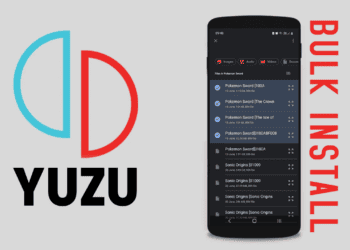The average person has around 40 apps installed on their mobile phone, and those working on computers are not aware of the web apps they are using on a daily basis. Still, we all depend on the existence and functionality of our constantly used apps.
Businesses delivering a service or a product rely on a perfectly designed web page and a mobile app that will serve their clients. We live in technologically advanced times, so using apps is in our favor whether we are a service, product provider, or consumer.
If you’re not aware of the difference between the two, we’re here to help. We’ll show you five main differences between mobile and desktop apps. That way, you’ll be able to understand the difference and make sense of the topic easily. Follow up and learn more!
1. Made for different use entirely
There are many differences between web and mobile apps, but the main one is the reason why they were built. The first ones are made for web page use, while the second ones are made for in-mobile use. Depending on your access, you may use one of them, but rarely both.
Both are created to make the users’ experience more valuable while using a particular program. Web apps are made only for browsers, and mobile apps are only available on mobile devices as separate applications. Since both are widely used, it’s normal for a business to develop both.
2. The use of technology and programming languages
Although many web and mobile apps use the same programming languages, developers would still use different ones depending on their needs. Some of the most popular web app developing languages are Python, Java, Ruby, PHP, while mobile app developers use Kotlin, C++, CSS, Swift, Golang, Flutter, etc.
If we’re talking about Fintech application development, a combination of different programming languages is used for both web and mobile apps. However, it all depends on what the developer is working on. This is why choosing a skilled and experienced team of developers is essential.
3. Mobile apps are much faster than desktop apps
If you’re thinking about choosing to develop only one of them, and wondering what would be a better choice, then you should know some of the pros and cons. One of the main reasons to choose mobile apps over web apps is the first ones’ speed.
Mobile apps are way faster than web apps. They are downloaded and installed on your phone, which is not required with the web apps, but nothing else is needed after this initial effort. Your app will be flying as it only depends on the power of your phone and nothing else. Web apps will rely on many more features to provide a flawless experience.
4. Mobile apps can work offline
Another fantastic feature that mobile apps provide is the chance to work offline. They don’t require internet connectivity, and you can open and use them while you’re offline. Web apps are designed to be used while using the internet, and if you’re not connected, they are useless.
This feature provides many benefits for companies, but others whose entire workload is online, will not find this option helpful. It’s up to you to decide what works the best for you and go with the solution that fits you best.
5. Web Apps are used in-browser while mobile apps are independent
Another significant difference is that web apps are used in-browser and nowhere else, while mobile apps are installed and used on multiple devices. Web apps are only used when we open a particular website and use their services. For example, a Fintech page where we need a payment service will have its web app when we open the page.
The same company will have an entirely different app for our smartphones. These two may look and feel the same but are built in entirely different environments. Their purpose may also be the same, but one of them is located on the internet, and the other one is downloaded on your phone.
Conclusion
Web and mobile apps may provide the same service but are entirely different. These five points are the most important ones when showing the difference between these products that are often confused with being the same.





